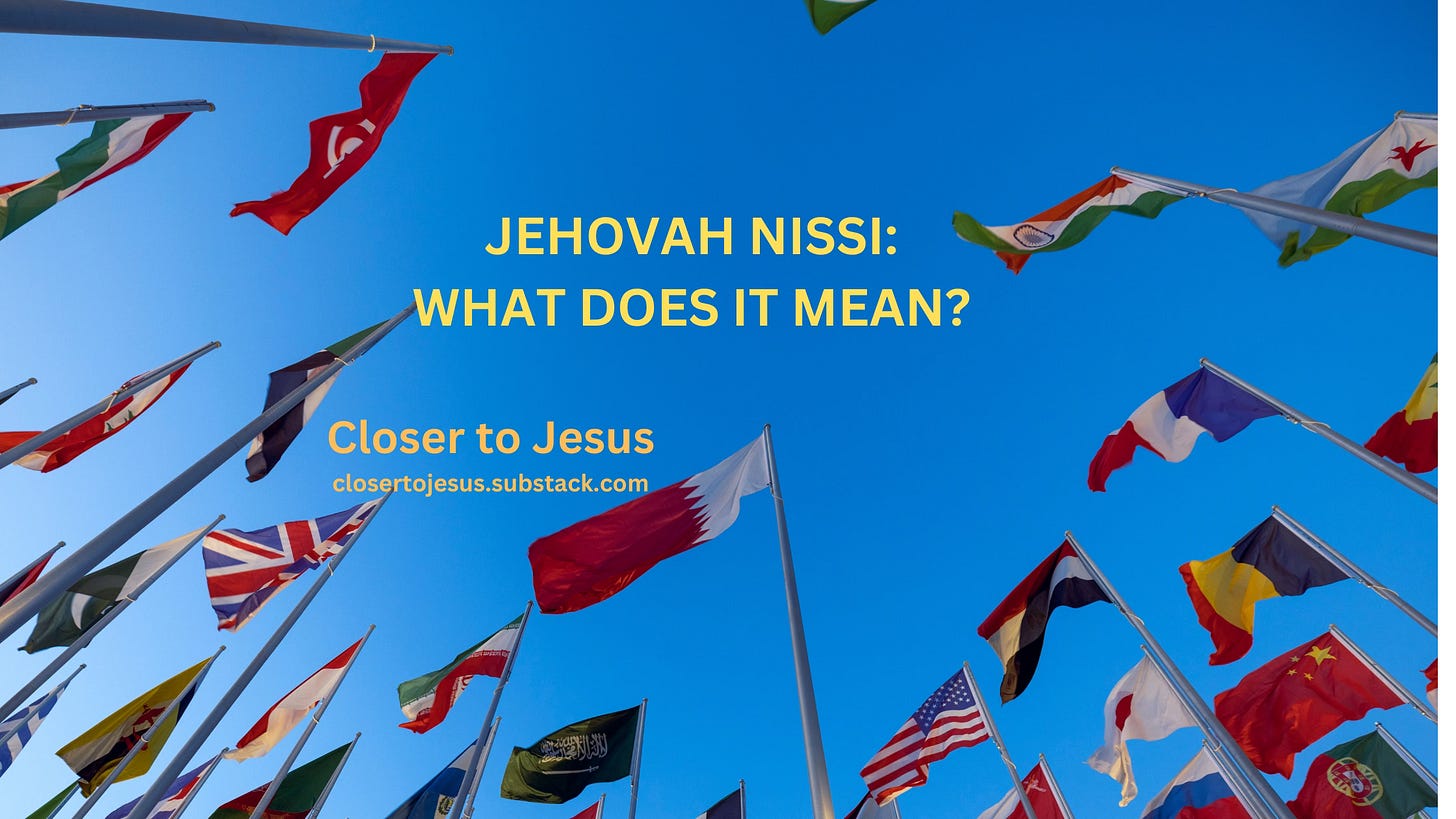Jehovah Nissi: What Does It Mean?
Jehovah Nissi: What Does It Mean?
We see flags frequently. Every country in the world has a flag, or banner, that represents them. It identifies them. Olympic athletes walk behind the flag of their country in the opening ceremonies. When an Olympic athlete wins a metal, the flag of their country is behind them. These flags are a physical representation of a figurative symbol of where they belong-their allegiance.
I have readers in 12 foreign countries, and I’m sure each of you see sometimes see the flag of your country. Where I live in America, I see American flags flying every time I leave my house. Huge flags wave in the wind at car lots and businesses. That flag is a symbol of all that America is and all America has gone through.
So, we understand when we see a flag, or banner, it is a symbol that represents something much bigger than strips of fabric.
That brings us to Jehovah Nissi. We know that Jehovah (LORD) means The Existing One. Nissi (Strong’s 5251) means banner.
Jehovah Nissi means:
The LORD is my banner.
We see this name in Exodus 17:15. Moses led the children of Israel out of Egypt and they are in the wilderness. They had not been away from Egypt very long when they are attacked by the Amalekites. They must fight for the first time. This group of slaves who had never been warriors before must take up arms and fight.
The Bible tells us what happens next. Moses took Joshua and Hur up a hill to watch the battle. When Moses held up his hands holding his staff, the Israelites were winning. But when Moses lowered his hands with the staff, the Amalekites were winning. Of course, Moses raised his arms and staff up again. But it didn’t take long for his arm to be exhausted. Aaron got on one side and Hur on the other side of Moses and they held his arms up until sunset so that the Israelites were victorious.
This event is not teaching us that it was the power of Moses that brought them victory. I believe that in these early days, God is showing the children of Israel during this first battle that Moses is the man He chose to lead them-but that God was in control. God would communicate with Moses-who could be trusted-and Moses would tell them what God said. God is giving an object lesson here that Moses would lead them according to God’s directions.
After their victory over the Amalekites, the LORD tells Moses:
“Write this in a book as a memorial and recite it to Joshua, that I will utterly blot out the memory of Amalek from under heaven.” Exodus 17:14.
God wanted the children of Israel – and every child of God that would come after them – what happened there. Moses immediately built an altar, which would have included a sacrifice to the LORD, and he named it The LORD is My Banner (Jehovah Nissi).
The LORD is my banner isn’t only for the Israelites at that moment in history. The LORD is our banner today. The LORD is my banner means the children of God look to Him for direction. The LORD is my banner reminds us that God is our leader. The LORD is my banner means we have chosen to be on the LORD’S side. The LORD is my banner means He is our protection. The LORD is my banner means He will fight for us. The LORD is my banner means He will lead us. The LORD is my banner is all this and more.
Oh yes, the LORD is my banner.
Carla Killough McClafferty



